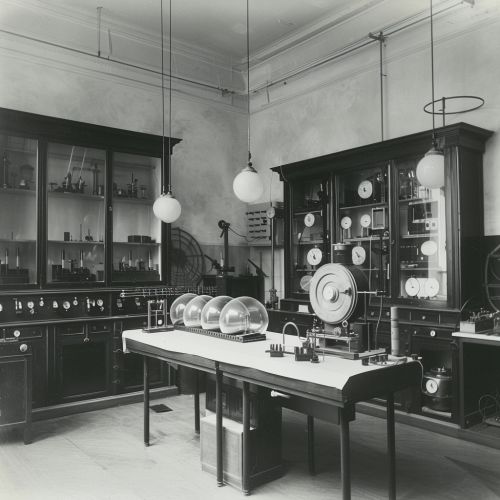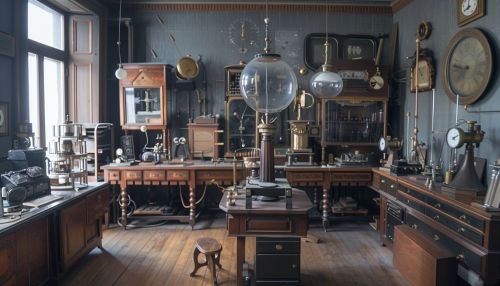Ernest Rutherford
Early Life and Education
Ernest Rutherford was born on August 30, 1871, in Brightwater, New Zealand. He was the fourth child in a family of 12. His father, James Rutherford, was a Scottish wheelwright, and his mother, Martha Thompson, was an English schoolteacher. The family lived in Spring Grove, now known as Brightwater, near Nelson, New Zealand.
Rutherford received his early education in Government schools and at the age of 16, he entered Nelson Collegiate School. In 1889, he was awarded a University scholarship and he proceeded to the University of New Zealand, Wellington. Here he distinguished himself in Mathematics and Physical Science, and graduated with a Bachelor of Arts in 1893. He continued his studies and earned a Master of Arts degree with First Class Honours in Physics in 1894.


Career and Research
In 1895, Rutherford was awarded an 1851 Research Fellowship from the Royal Commission for the Exhibition of 1851, to study at Trinity College, Cambridge under the physicist J.J. Thomson. At Cambridge, he conducted his seminal work on the radioactive decay of atoms. In 1898, he was appointed as a professor of physics at McGill University in Montreal, Canada, where he did significant work on radioactive decay, leading to his formulation of the law of radioactive decay.
In 1907, Rutherford returned to England to become a professor at the University of Manchester. Here, he conducted his famous gold foil experiment, which led to the discovery of the atomic nucleus. This experiment was a landmark in the development of the atomic theory.
In 1919, Rutherford succeeded Sir Joseph Thomson as the Cavendish Professor of Physics at Cambridge. He held this position until his death in 1937. During his tenure at Cambridge, he continued his research on atomic structure and also conducted pioneering work in the field of nuclear physics.
Achievements and Legacy
Rutherford's most notable achievement was his discovery of the atomic nucleus. This discovery revolutionized the field of atomic physics and laid the foundation for the development of nuclear physics and quantum mechanics.
In recognition of his contributions to science, Rutherford was knighted in 1914. In 1908, he was awarded the Nobel Prize in Chemistry "for his investigations into the disintegration of the elements, and the chemistry of radioactive substances".
Rutherford's work has had a profound impact on the scientific world. His research has led to significant advancements in our understanding of atomic structure and nuclear physics. His legacy continues to influence the field of physics and his contributions to science are still recognized today.
